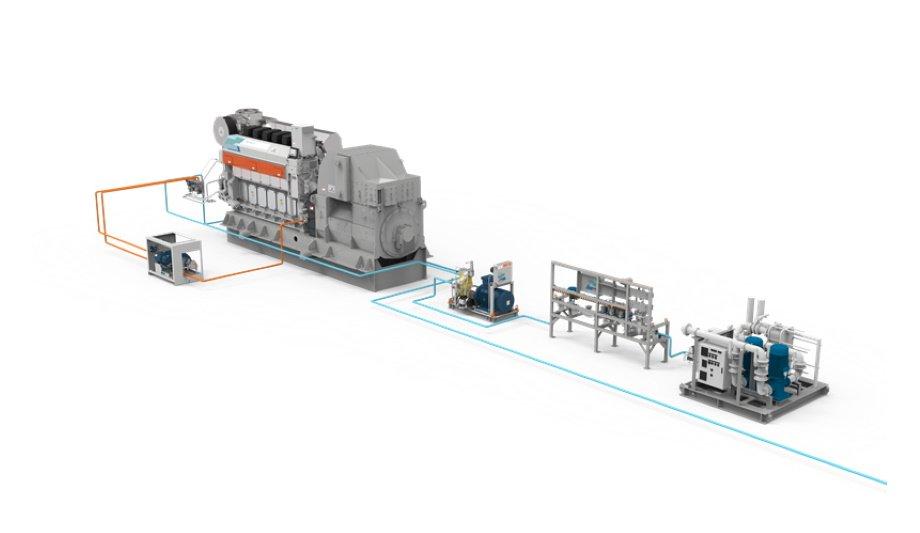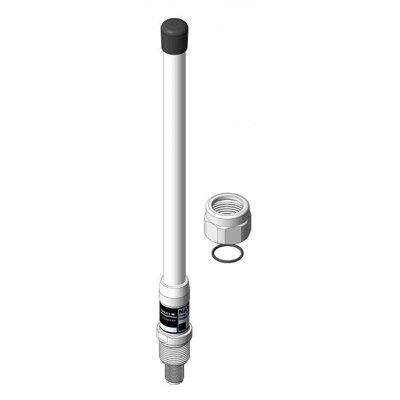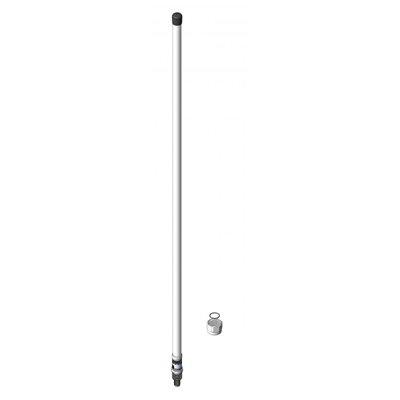The globally renowned technology company, Wärtsilä (Wärtsilä Corporation) has developed a dedicated fuel supply system for methanol, MethanolPac, as interest grows in the methanol pathway to decarbonisation.
Combined with the recently introduced Wärtsilä 32 Methanol engine and the company’s well-proven retrofit and system integration capabilities, MethanolPac enables Wärtsilä to deliver methanol-capable fuel and power systems, across a wide range of vessel segments.
MethanolPac
Methanol is a widely available fuel that is carbon neutral, when produced from renewable sources and is easier to handle than many other alternative fuels. But, with very few vessels currently operating on methanol, industry experience of integrating such systems is limited.
“MethanolPac will reassure ship owners, who may not know where to turn for help, in designing their methanol fuel and power system,” said Mathias Jansson, Director - Fuel Gas Supply Systems, Wärtsilä Marine Power, adding “Wärtsilä does not just provide the methanol engine, we have the systems and capabilities to help customers realise methanol-fuelled vessels in full.”
High-pressure Methanol Fuel Pump Unit
MethanolPac includes both the low- and high-pressure parts of the fuel supply system
MethanolPac includes both the low- and high-pressure parts of the fuel supply system, as well as the related control and safety functions. This includes the high-pressure Methanol Fuel Pump Unit, low-pressure pump module, fuel valve train, bunkering stations, and tank instrumentation.
MethanolPac will gain its first reference, alongside the debut installation of the Wärtsilä 32 Methanol engine, on a wind turbine installation vessel under construction for Dutch dredging and offshore ship operator, Van Oord.
Wärtsilä 32 Methanol engine
The newbuild Wärtsilä 32 Methanol engine combines long-established methanol fuel injection technology – first developed for the converted Wärtsilä Z40 engines onboard ropax Stena Germanica in 2015 – with the cutting-edge control and automation systems of the well-established Wärtsilä 32 platform.
Methanol fuel injection can also be retrofitted to any of the more than 5,000 conventionally fuelled Wärtsilä 32 engines in operation. MethanolPac means that such retrofits can be dramatically simplified, with one supplier providing both engine and fuel supply systems.
Using methanol as Fuel
For many vessel segments, the Wärtsilä 32 Methanol and MethanolPac are among the first commercially available technologies for using methanol as a fuel. The Wärtsilä 32 Methanol is applicable either as a main engine or auxiliary generator, on a wide range of vessel types, ranging from offshore support vessels to deep-sea merchant ships.
Wärtsilä is investing heavily in research and development to ensure that ship operator have the technologies needed to use new fuels, as they become available. Wärtsilä will develop an ammonia-fuelled engine concept by 2023, and a hydrogen concept by 2025.
Wärtsilä will host a webinar exploring the use of methanol as fuel in the marine sector and its new methanol engine and fuel supply technology on March 22, 2022.















